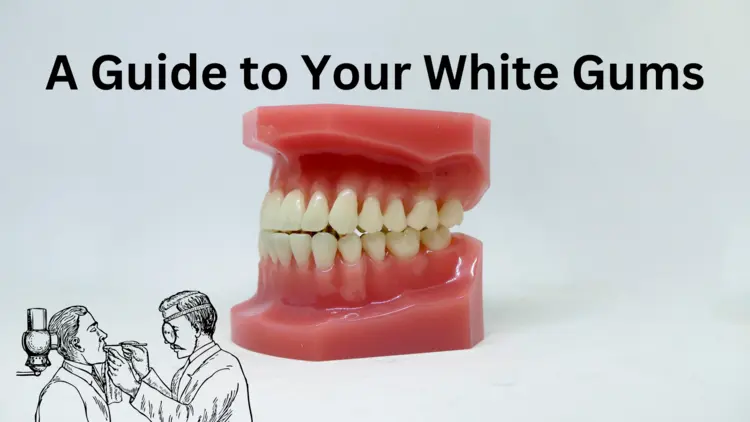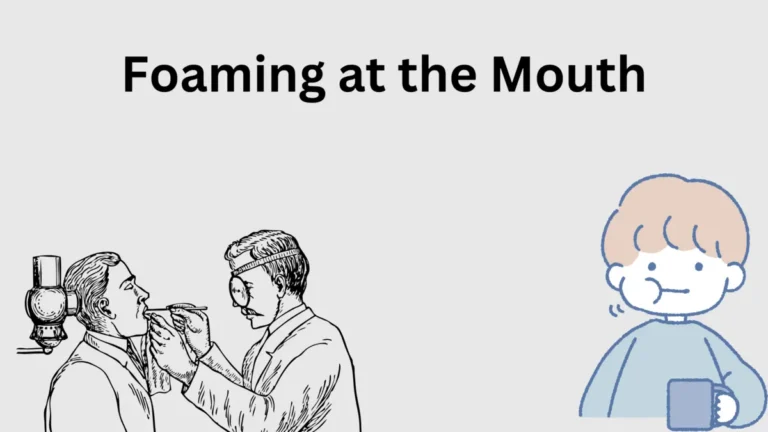What Causes Pale Gums? A Guide to Your White Gums
White gums can be a sign of various underlying health issues, ranging from minor irritations to serious medical conditions. Understanding the causes, symptoms, and treatment options is essential for maintaining good oral and overall health. In this article, we’ll explore everything you need to know, including when to see a doctor and how to keep your gums healthy.
What Are White Gums?

White gums refer to a condition where the gum tissue loses its natural pink color and appears pale or white. This discoloration can occur in patches or affect the entire gum line. While it may seem harmless, it can sometimes indicate an underlying health problem that requires attention.
Is White Gum Serious?
White gums can be a cause for concern, depending on the underlying cause. In some cases, it may be a temporary issue caused by minor irritation or poor oral hygiene. However, it can also be a symptom of more serious conditions like anemia, infections, or oral diseases. If you notice persistent white gums, it’s important to consult a healthcare professional.
Why Are My Gums White?
There are several reasons why your gums might turn white. Some common causes include:
Anemia and Nutritional Deficiencies
- Lack of iron, vitamin B12, or folate can lead to pale gums.
- Symptoms: Fatigue, dizziness, and pale skin.
- Treatment: Iron supplements and a balanced diet.
Canker Sores and Gumline Discoloration
- Painful ulcers in the mouth can cause white patches on the gums.
- Treatment: Over-the-counter topical treatments and mouth rinses.
Gingivitis and Poor Oral Hygiene
- Inflammation of the gums due to plaque buildup.
- Symptoms: Swelling, redness, and bleeding.
- Treatment: Improved oral care and professional cleaning.
Leukoplakia and Tobacco Use
- White patches caused by irritation from smoking or chewing tobacco.
- Treatment: Quitting tobacco and regular dental check-ups.
Oral Lichen Planus
- A chronic inflammatory condition affecting the mucous membranes.
- Treatment: Corticosteroids and immune-modulating drugs.
Oral Thrush
- A fungal infection caused by Candida overgrowth.
- Treatment: Antifungal medications.
Teeth Whitening
- Overuse of whitening products can irritate the gums.
- Treatment: Discontinuing use and consulting a dentist.
Tooth Extraction
- Temporary whitening around the extraction site.
- Treatment: Proper aftercare and monitoring.
When to See a Doctor?
If you experience any of the following symptoms along with white gum, seek medical attention immediately:
- Persistent pain or discomfort.
- Bleeding or swelling.
- Difficulty eating or swallowing.
- White patches that don’t heal.
- Unexplained weight loss or fatigue.
You can also read our detaiedl article about foaming at the month at our website.
Tips for Healthy Gums
Maintain Good Oral Hygiene
- Brush twice a day and floss regularly.
- Use an antiseptic mouthwash to reduce bacteria.
Eat a Balanced Diet
- Include foods rich in vitamins and minerals.
- Stay hydrated to promote saliva production.
Avoid Tobacco Products
- Smoking and chewing tobacco can harm your gums.
Regular Dental Check-ups
- Visit your dentist every six months for cleanings and exams.
You can also read how to envy your penis by using mushrooms from here.
Can Turn Pink Again?
Yes, with proper treatment and care, white gums can return to their natural pink color. The key is to address the underlying cause and follow a consistent oral care routine.
Home Remedies and Preventive Measures
Saltwater Rinse
- Reduces inflammation and promotes healing.
Aloe Vera Gel
- Soothes irritated gums.
Turmeric Paste
- Has anti-inflammatory and antibacterial properties.
Hydration
- Drink plenty of water to keep your mouth moist.
The Importance of Regular Dental Check-ups
Regular dental visits are crucial for early detection and prevention of oral health issues. Your dentist can identify the cause of white gum and recommend appropriate treatment.
You can also read our different articles about maintaining your health on awais mughal website.
Bottom Line
White gums can be a sign of various health conditions, some of which require prompt medical attention. By understanding the causes, symptoms, and treatment options, you can take proactive steps to maintain healthy gums. Remember, regular dental check-ups and a good oral care routine are your best defenses against oral health problems.





